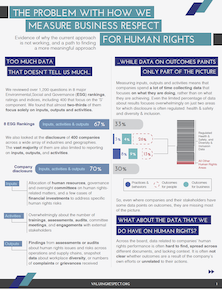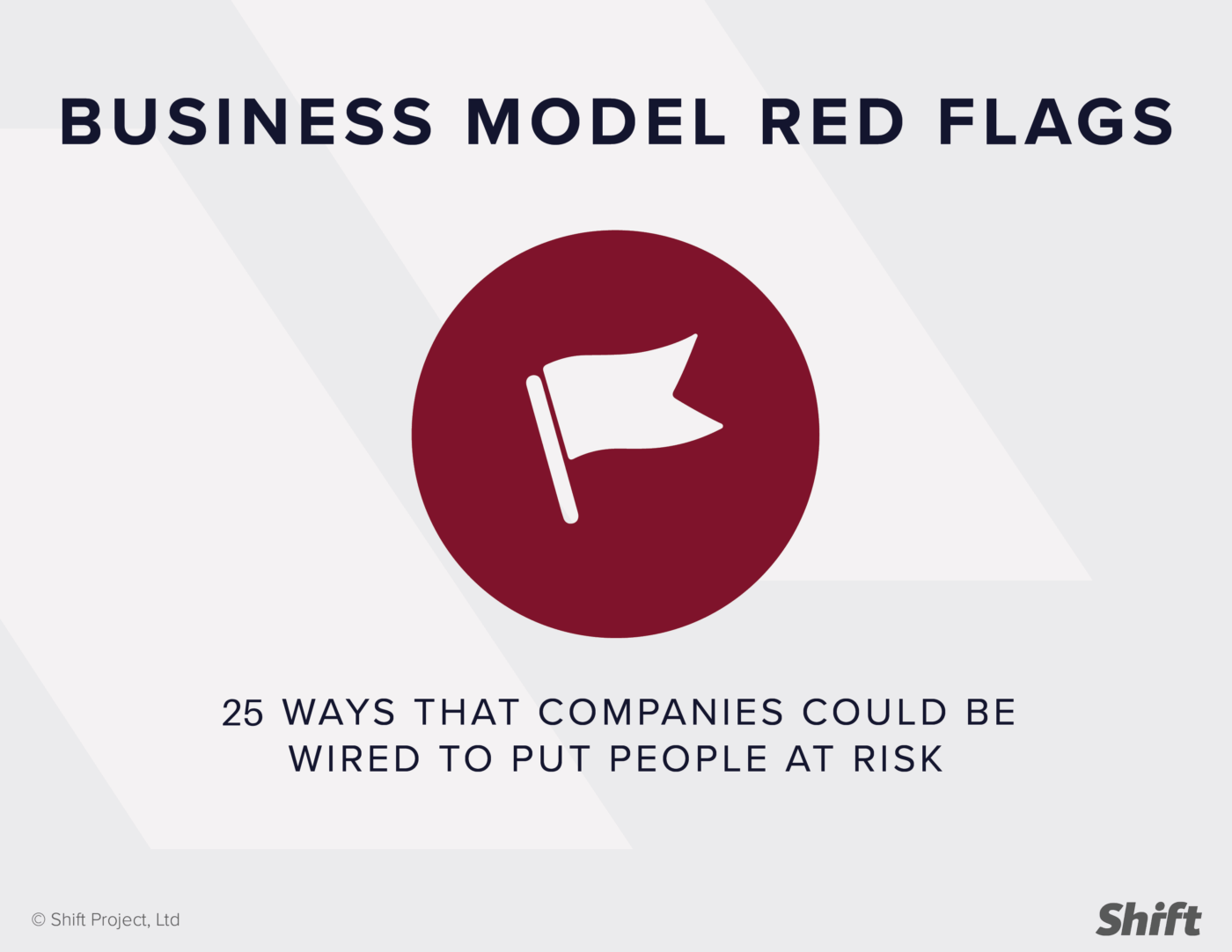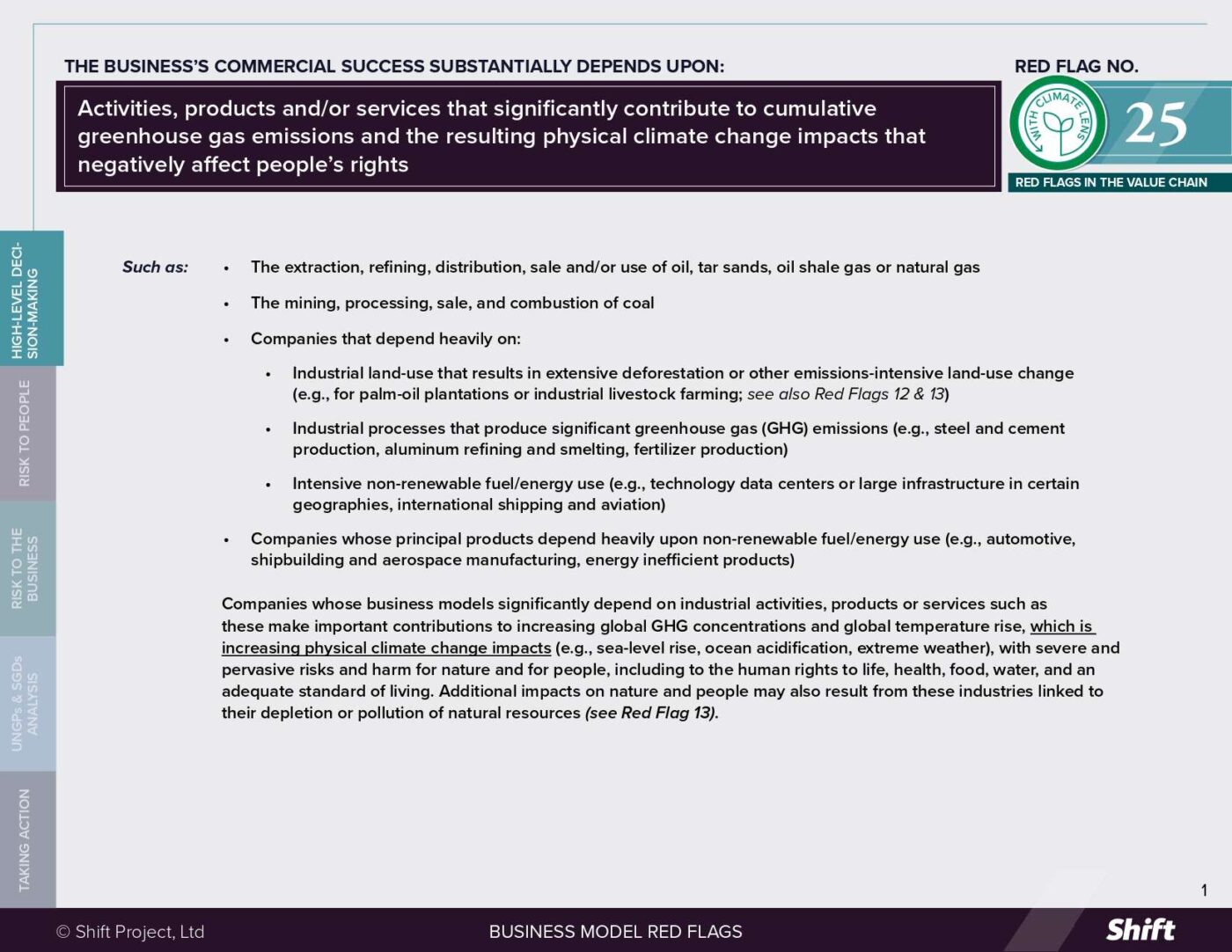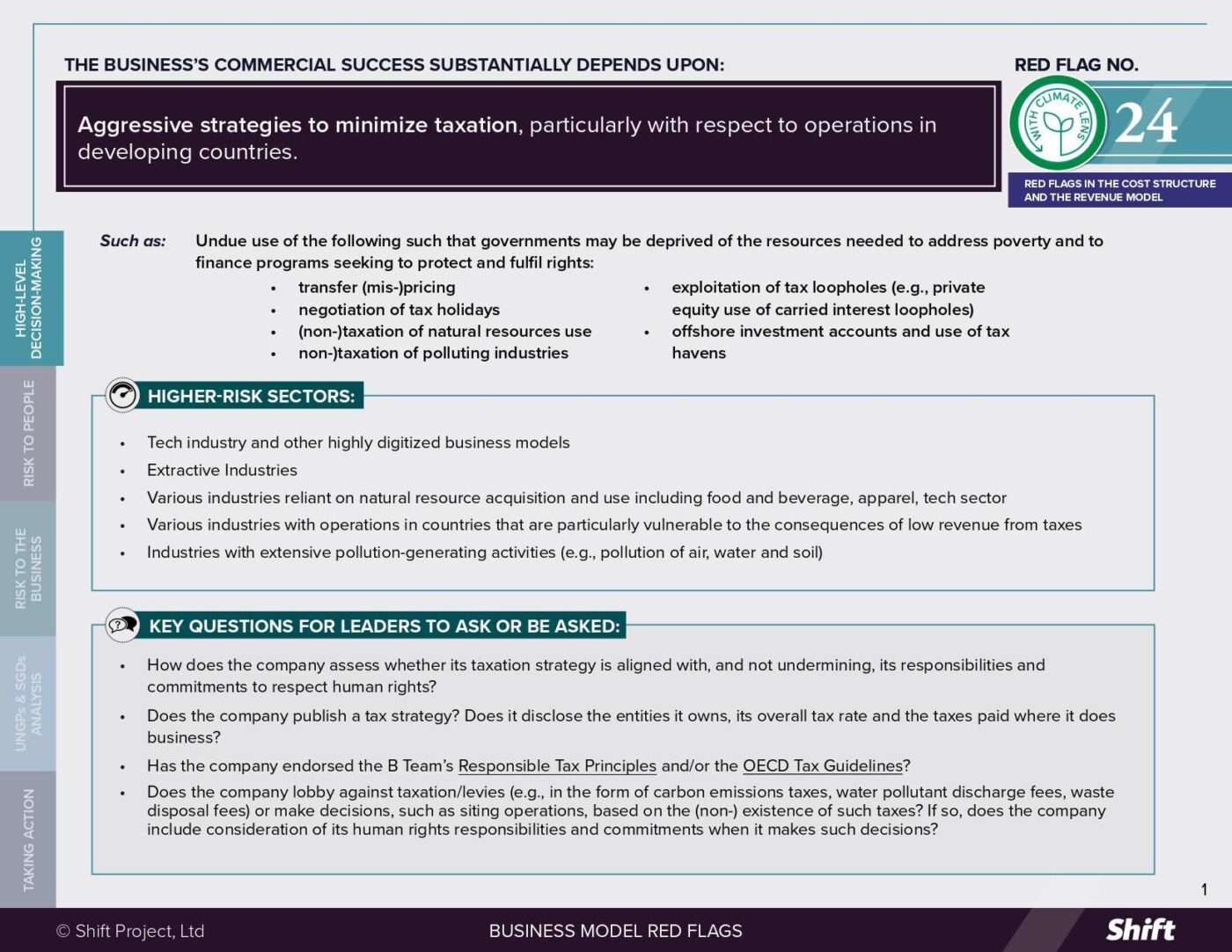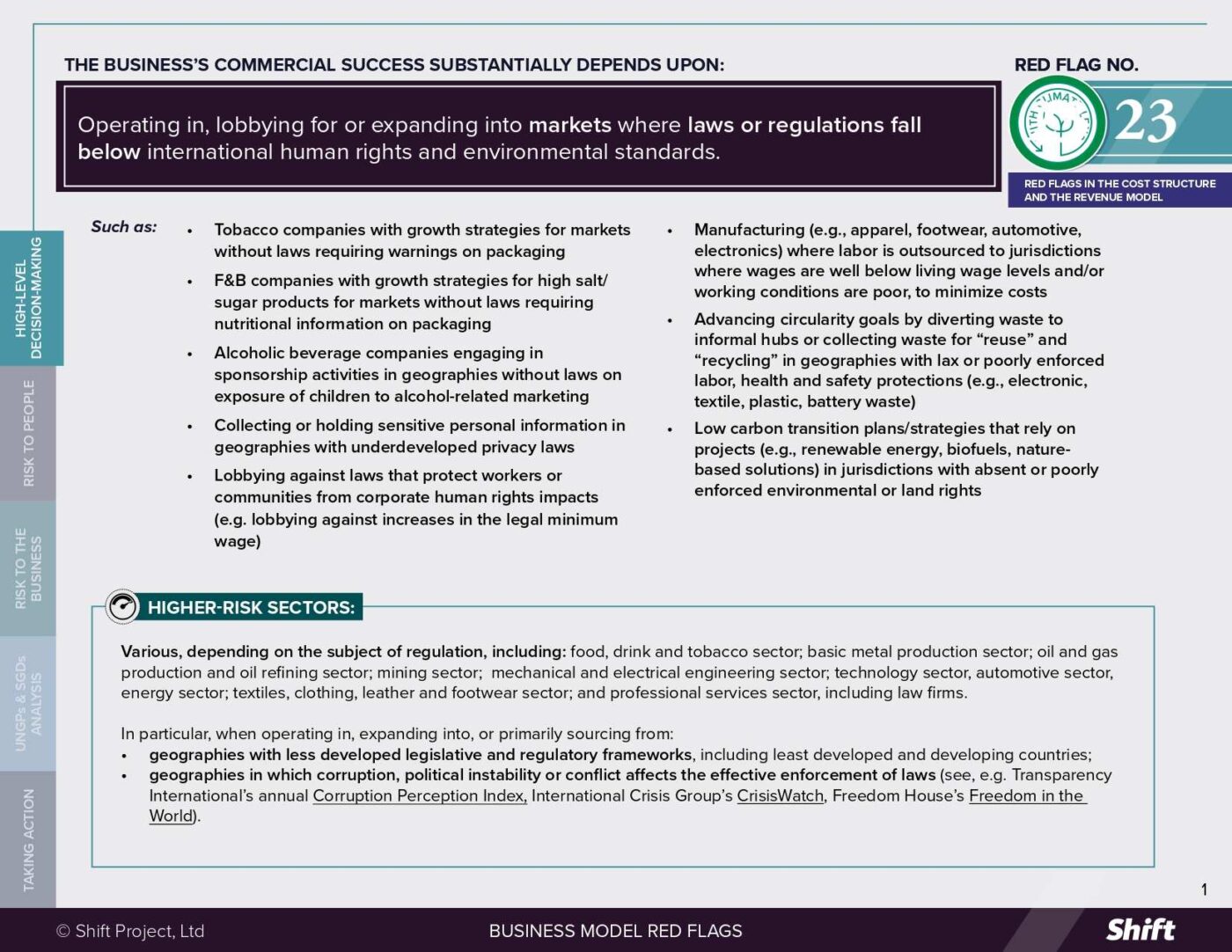Coming together to reimagine how we measure whether we are embedding respect for people in how business gets done
WHY EVALUATION NEEDED TO CHANGE
Every day, practitioners, experts, activists, investors and leaders around the world, work tirelessly to make sure that respect for people’s dignity and human rights are at the core of how business gets done. Yet, the indicators that we typically use to measure a company’s social performance (also known as the ‘S’ in ESG) tend to focus on what is easy to measure, rather than on whether we are achieving a difference in people’s lives. Existing indicators offer companies a limited understanding of whether their efforts are paying off. They also provide limited insight to those trying to incentivize companies to improve their behavior –such as investors, civil society organizations and regulators.
That is why, in early 2018, Shift launched Valuing Respect (Watch | Shift’s President and Co-Founder Caroline Rees announces the Valuing Respect project at the opening bell ceremony of NASDAQ >) , a three-year project to research, develop and gradually crystallize tools that could help companies -and their stakeholders- improve how they evaluate business respect for human rights. Our year-by-year timeline is available here.
Our first objective was to have a clear understanding of the data and metrics that were available to companies and investors who seek to evaluate respect for human rights. We reviewed over 1,200 questions in 8 major Environmental,Social and Governance (ESG) rankings, ratings and indices, including 400 that focus on the ‘S’ component.
CO-CREATION AT THE CORE OF OUR APPROACH
A fundamental component of Valuing Respect was its multi-stakeholder, cross-disciplinary and geographically diverse approach to research and co-creation. In total, we held 9 consultations with stakeholders in New York, London, Poland, Singapore and South Africa.

Based on the first round of conversations, we identified distinct research areas where Valuing Respect could add value. This led to additional consultations with specialized experts in areas such as accounting, governance and behavioral science.
As our thinking evolved in 2019, we began to bring initial ideas for new tools, methods and indicators back to our multi-stakeholder consultations, while deepening our engagement with experts and beginning some pilot work with companies and investors.
Our conversations were always held under The Chatham House Rule to allow participants to speak freely about the issues and their experience. However, in the spirit of transparency and open dialogue, we kept our agendas public and issued summaries of the key ideas discussed, without attribution to any speaker.
You may find a compilation of our consultation notes, summaries and agendas in the transparency section below.
Collaborators
Funders, Partners and members of our Advisory Group
Funders
The Valuing Respect Project was made possible thanks to the generous funding of:
- Norges Bank Investment Management
- The Ministry of Foreign Affairs of Norway
- The Ministry of Foreign Affairs of Finland
Regional partners
Our work across a number of regions was made possible thanks to our partnership with:
- The Polish Institute for Human Rights and Business
- Global Compact Network Thailand
- The ASEAN CSR Network
- The Human Rights Centre at the University of Pretoria
Supporting Organizations
- Behavioural Science Group, Warwick University
- Capitals Coalition
- Investor Alliance for Human Rights
- Keystone Accountability
- Manchester Business School
- Mazars UK
- Universalia
- and Shift’s Business Learning Program participants.
Shift would also like to thank the following organization that hosted project consultations – Gold Fields, Institute for Chartered Accountants of England and Wales, Mazars UK, Microsoft, and Unilever.
International Advisory Group
A group of experts from diverse backgrounds and geographies committed to help steer the Valuing Respect Project as members of our International Advisory Group, providing strategic guidance to the project and critical inputs to research, findings and outputs. Members included:
- Mike Ashley – Non-Executive Director at Barclays
- Alva Bruun – Senior Advisor at the Ministro of Foreign Affairs of Finland
- Andreas Feiner – CEO at Arabesque S-Ray
- Lee Alexander Risby – Director of Effective Philanthropy at Laudes Foundation
- Mathilde Mesnard – Deputy Director at the Directorate for Financial Enterprise Affairs of the OECD
- Shameela Soobramoney – Senior Manager at the Johannesburg Stock Exchange
- Kamil Zabielski – Head of Sustainability at the Norwegian ECA
- Rachel Wilshaw – Ethical Trade Manager at Oxfam GB
- Filippo Veglio – Managing Director at WBCSD
- Maddalena Neglia – Director of Globalization and Human Rights at FIDH
- Dr. Seree Nonthasoot – Governor and Chair of the Committee of Legal Affairs at the Stock Exchange of Thailand
- Wilhelm Mohn – Head of Sustainability Initiatives at Norges Bank Investment Management
- Ken McPhail – Director of Research at the Alliance Manchester Business School
- Brendan Leblanc – Partner of Climate Change and Sustainability at EY
- Piotr Kazmierkiewicz – Analyst at Centralny Dom Maklerski Pekao
- Rosey Hurst – Founder of Impactt
- Christian Heller – Senior Manager of Corporate Sustainability at BASF
- Rafendi Djamin – Member of the Advisory Board of the ASEAN CSR Network
- Cathy Feingold – Director of International Department at AFL-CIO
- Allison Burger – VP and Head of Community Relations at Gold Fields
- Phil Bloomer – Executive Director of the BHRRC
MULTI-STAKEHOLDER CONSULTATIONS
around the world to co-create promising paths forward and the indicators and tools
SINGLE-STAKEHOLDER CONSULTATIONS
focused on use-cases and refining beta versions of the tools ahead of their final publication
Transparency
Below, you may find our notes from consultations and calls with our International Advisory Group
13 resources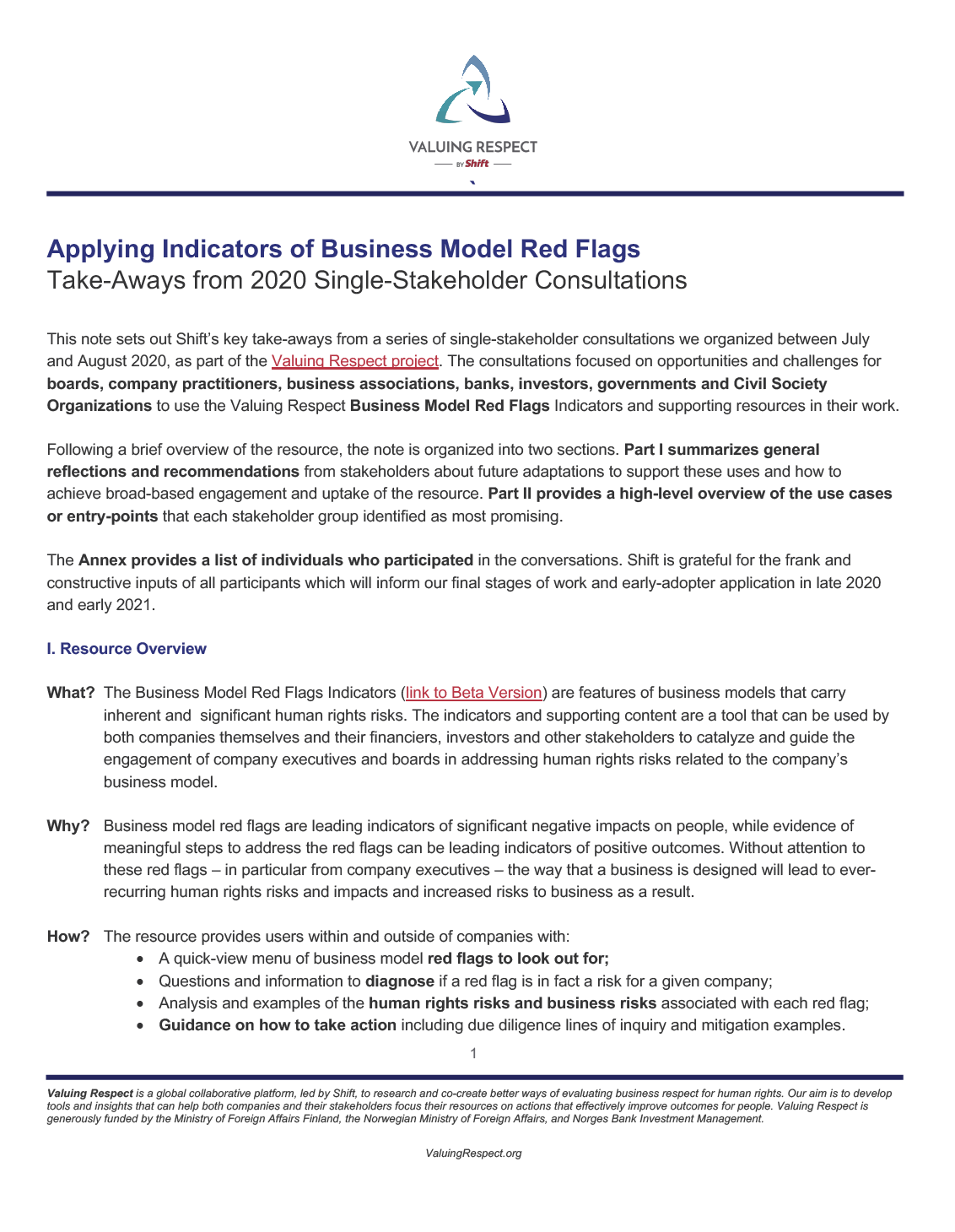
Take-aways from the single-stakeholder consultations on the Business Model Red Flags
This note summarizes our take-aways from the stakeholder consultations held in 2020
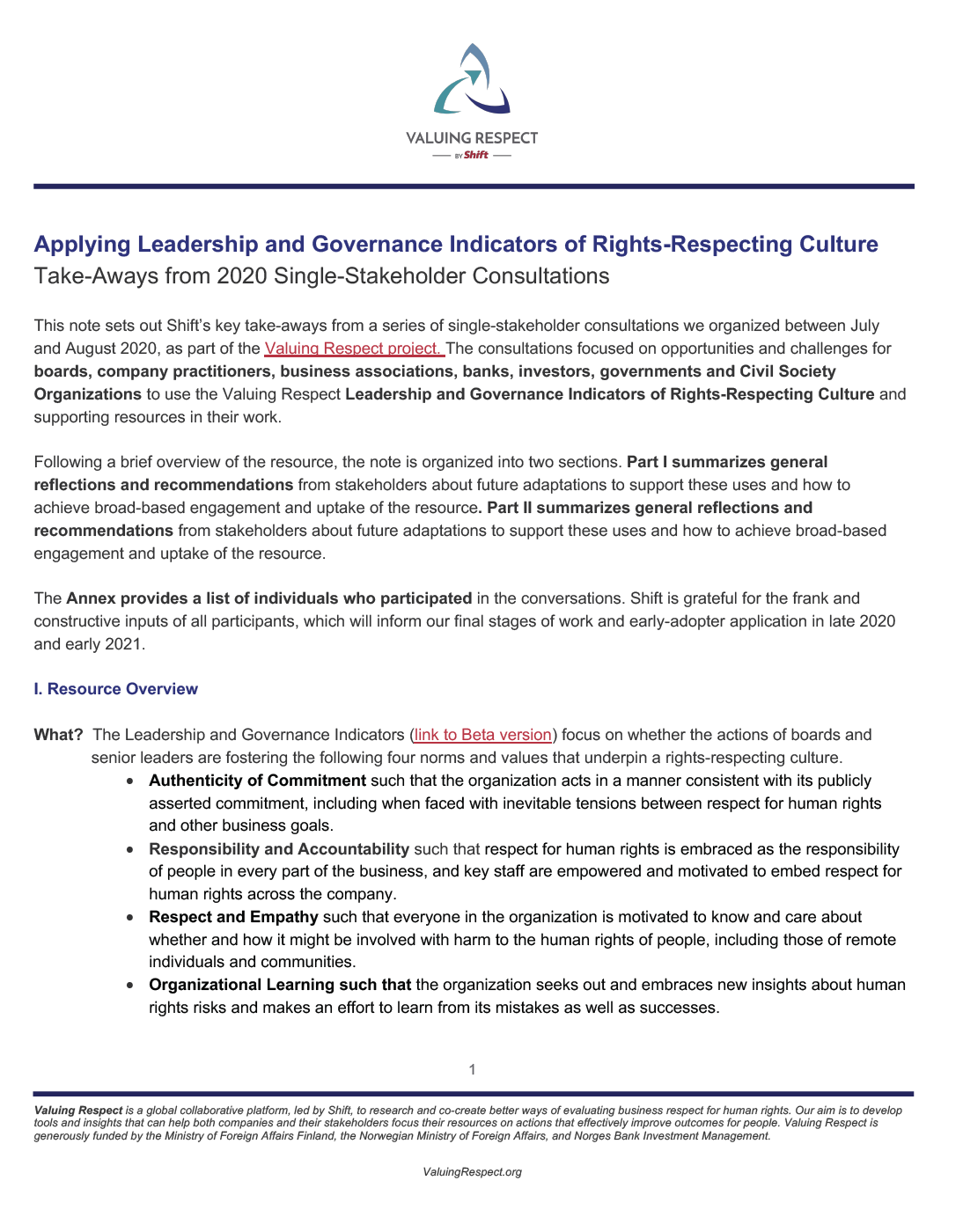
Take-aways from the single-stakeholder consultations on the Leadership and Governance Indicators
This note summarizes our take-aways from the stakeholder consultations held in 2020
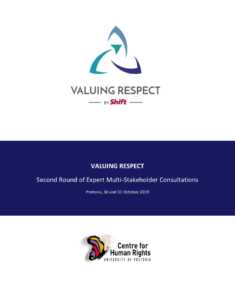
South Africa Multi-Stakeholder Expert Consultation (Round 2)
This note summarizes the discussions that happened in our second round of consultations in Pretoria, South Africa
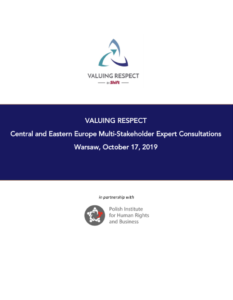
Central and Eastern Europe Multi-Stakeholder Expert Consultation (Round 2)
This note summarizes the discussions that happened in our second round of consultations in Warsaw, Poland
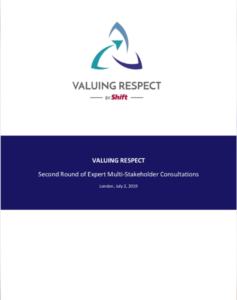
London Multi-Stakeholder Expert Consultation (Round 2)
This note summarizes the discussions that happened in our second round of consultations in London, UK.
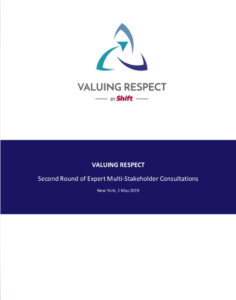
New York Multi-Stakeholder Expert Consultation (Round 2)
This note summarizes the discussions that happened in our second round of consultations in New York, US.
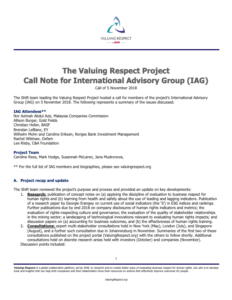
Call Note for International Advisory Group (IAG)
This is a summary of the conversation with IAG members in November 2018
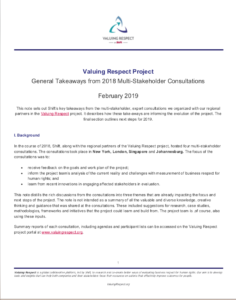
General Takeaways – First Round of Consultations
This document summarizes our Valuing Respect consultations for 2018. In it you can find key takeaways and what we will be working on with the Valuing Respect project in 2019
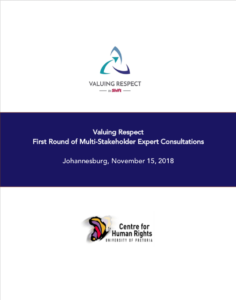
Johannesburg Multi-Stakeholder Expert Consultation (Round 1)
This note summarizes the discussions that happened in our first round of consultations in Johannesburg, SA
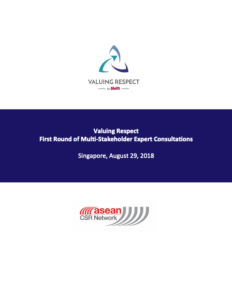
Singapore Multi-Stakeholder Expert Consultation (Round 1)
This note summarizes the discussions that happened in our first round of consultations in Singapore
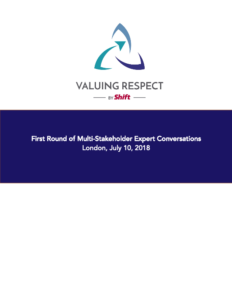
London Multi-Stakeholder Expert Consultation (Round 1)
This note summarizes the discussions that happened in our first round of consultations in London, UK.
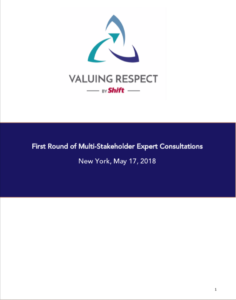
New York Multi-Stakeholder Expert Consultation (Round 1)
This note summarizes the discussions that happened in our first round of consultations in New York, NY.
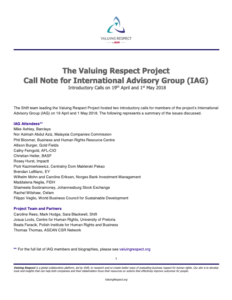
Call Note for International Advisory Group
This note reflects the discussion during the kick-off call that we had with the members of our International Advisory Group, in May 2018.

Thanks for signing up.

 Business Model Red Flags
Business Model Red Flags  Tool for Indicator Design
Tool for Indicator Design 